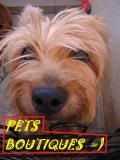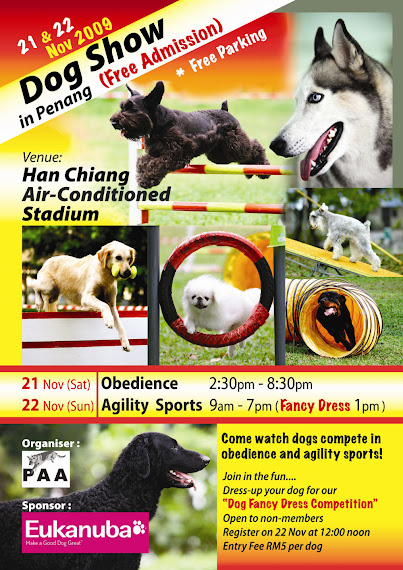Tuesday July 7, 2009
By ALLAN KOAY
A local company has innovatively been transforming rice husks into biodegradable and reusable household products.
IT was a peculiar and unusual sight which he saw every weekend that inspired Mogus Siew to start an eco-friendly business. During their weekend trips back to their hometown of Sekinchan, Selangor, Siew and his wife would drive pass a rice mill factory.
And it had always confounded Siew as to why the factory was built so close to a "hill".
"It was only after my wife pointed it out that I realised it wasn't a hill but a pile of rice husks," said Siew.
No one would fault Siew for thinking it was a hill because the mound of rice husks reached the height of the factory itself. He has a picture on a banner in his office in Puchong, Selangor, to prove it. And thanks to his wife too, Siew began to think about how the rice husks could be used instead of just left to waste and become an eyesore.
"I realised that it was a huge resource which could be converted into products," said Siew.
 All natural: Ocha cups produced by Melsom Biodegradable. The biodegradeable and reusable items are made from rice husks, without any polishing, spraying or coating.
All natural: Ocha cups produced by Melsom Biodegradable. The biodegradeable and reusable items are made from rice husks, without any polishing, spraying or coating. That was in 2005. Siew then got acquainted with a foreign professor who later gave him a formula for creating biodegradable products. Siew decided to experiment with rice husks to see if the material could be turned into disposable utensils such as chopsticks.
"We wanted to create biodegradable ones which you can use once and then throw away," said Siew.
And so, Melsom Biodegradable was born. The disposable chopsticks were launched early last year but Siew found them to be hardy and could be used many times. So he decided to experiment further to make reusable biodegradable products.
C.P. Chong, chief executive officer of Melsom Biodegradable, said the original formula was only for disposable ware and was commonly known.
"We tried it on many things, even sugarcane and corn, but weren't successful until we used rice husks. Then we discovered a natural adhesive that is extracted from a tree and used it in our biodegradable formula. That was how we came up with the products that we have today."
If all this talk about a formula, a mysterious foreign professor and equally mysterious natural ingredients sound somewhat ambiguous, it is because Siew – who is both founder and chief operations officer of Melsom – and Chong are not going to divulge any details about what they do. It all boils down to one word – patent.
Melsom has a patent pending for its formula for biodegradable and reusable products. Even StarTwo's request to visit its factory in Balakong was denied.
But both Siew and Chong assure us that the entire manufacturing process is chemical-free and eco-friendly, without any waste or by-products that may be harmful to the environment. The process can be broken down into this: the husks are ground, then filtered to remove unwanted bits; the patent-pending formula and adhesive are added to bind the ground rice husks; the material is then moulded in a high-temperature compression machine which sterilises the products at the same time; and finally, finishing is done on the products.
"But we don't do any polishing," said Chong. "Although you see that the surfaces of our products are shiny, the shine is actually natural. The rice husk has a layer of natural wax. So we don't need to do any polishing, spraying or coating."
 Homeware made from rice husks
Homeware made from rice husks The manufacturing process takes a long time, they said, and is rather complicated and expensive at the moment. "Our company wants to popularise these products. So we don't want to sell them at too high a price. We want everyone to be able to afford them," said Siew.
The whole range of products, from chopsticks and ocha cups to cutting boards and children's tableware, is priced from RM3.90 to RM59.90. They are dishwasher-safe and can be used in the microwave but only for reheating and defrosting. The products can withstand heat up to 120°C.
Chong said there is no danger of toxicity even at high temperatures as the products are made of organic fibre, and so they would just burn and turn to ash. They also have anti-bacterial and anti-odour features.
"Rice husk is very strong and hard," said Chong. "It has a lot of natural features such as anti-odour and can stand high temperatures. The husk is a protective layer for the rice. So it is a good, solid material for reusable products."
The cutting boards have an extra ingredient, nano silver, which may raise some eyebrows. Nano silver utilises silver nanoparticles as an anti-bacterial function, and was first used in washing machines and refrigerators. Opinions around the world about the use of nano silver have been mixed. There are claims that it poses a risk to the environment.
"Nano silver technology is very accepted in Japan and South Korea," said Siew. "But in Europe there are disapproving voices against its use. But we have tested nano silver in the lab and found no trace of toxicity."
He said the cutting boards have been tested and certified by SGS, a testing and certification company.
But Chong added: "High compression already gives the products high density. So the anti-bacterial function is already naturally found in the products. We don't really need to add nano silver but because the Japanese and Koreans have high regard for nano silver technology, we added that in the products."
Chong said rice husk is a good material for making cutting boards as it is not porous, and therefore would not absorb liquid. This is unlike wooden and bamboo cutting boards which would soak up water and blood from meat and fish. "And the surface, after repeated use, will only have fine scratches and not deep cutting marks," he added.
Both Chong and Siew do not have any background in science, although Chong has worked in the recycling of plastics before. But both are eager to contribute to a healthier environment.
"Rice husks are a problem for rice mill factories," said Chong. "They used to get rid of them by burning, which causes air pollution. So we came up with the idea of using rice husks which are byproducts that no one wants. We can solve the rice husk waste problem and at the same time, help the environment."
Melsom numbers for enquiries:03-8065 2457/ fax: 03-8065 2458
This article was taken from: The Star Online: Go Green Live Green 7 July 2009











































No comments:
Post a Comment